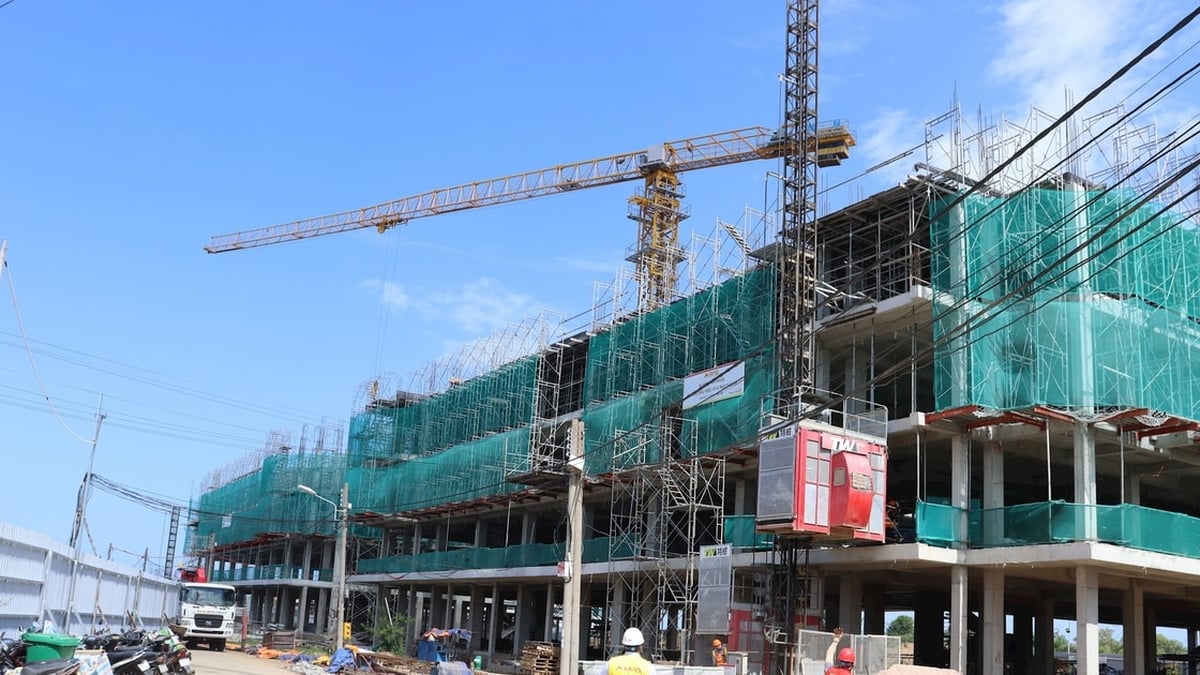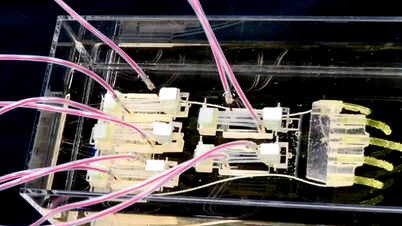However, a new study just published in the scientific journal PsyPost , has warned coffee lovers to pay more attention to when they drink their coffee.
Scientists from the University of Montreal (Canada) surveyed 40 healthy adults aged 20-58 who were coffee lovers. Each participant spent two days at a sleep clinic. On one day, they consumed 200 mg of caffeine (equivalent to about 2 cups of coffee) in the afternoon; on the other day, they drank a placebo. The experiment was designed to be objective: No one knew which night they drank coffee and which night they drank the placebo.

Coffee is one of the most widely consumed beverages globally.
Photo: AI
Brain activity during sleep is monitored using electroencephalography (EEG), which allows recording and analysis of electrical signals from the brain.
The results found that an afternoon coffee, even in moderate doses, can negatively affect brain activity during sleep, especially during non-REM sleep — a stage important for physical and mental recovery, according to the scientific journal New Atlas.
Although an afternoon coffee break does not completely prevent sleep, it does alter the brain's activity during sleep, which may affect physiological recovery, tissue regeneration, immune regulation, and memory processing.
Specifically, EEGs recorded higher levels of electrical activity, brain signals tended to be less stable, and decreased sleep depth. Some signals reflected a state of brain activity that was almost "alert," even while sleeping.
According to Professor Philipp Thölke, lead author of the study, caffeine slows down but does not completely eliminate the sleep process. Under its influence, sleep becomes lighter, and the brain continues to process information when it should be resting.
Age-related effects
Research also shows that younger adults, aged 20-27, are more affected by caffeine during REM sleep than middle-aged adults, according to New Atlas.
This may be due to differences in the density of adenosine receptors—the main target of caffeine’s effects—in the brain. Older adults have fewer of these receptors, making caffeine less effective during REM sleep. However, during non-REM sleep, the effects of caffeine are similar across all ages.
Researchers have concluded that an afternoon coffee, even in low doses, can restructure brain activity during sleep and impair the quality of non-REM sleep – a key stage for recovery and mental health.
This study highlights the importance of coffee timing, especially for people with sleep problems.
Source: https://thanhnien.vn/phat-hien-quan-trong-uong-ca-phe-luc-nao-cung-tot-tru-gio-nay-185250724223351872.htm


























![[Photo] Signing of cooperation between ministries, branches and localities of Vietnam and Senegal](https://vphoto.vietnam.vn/thumb/1200x675/vietnam/resource/IMAGE/2025/7/24/6147c654b0ae4f2793188e982e272651)












































































Comment (0)